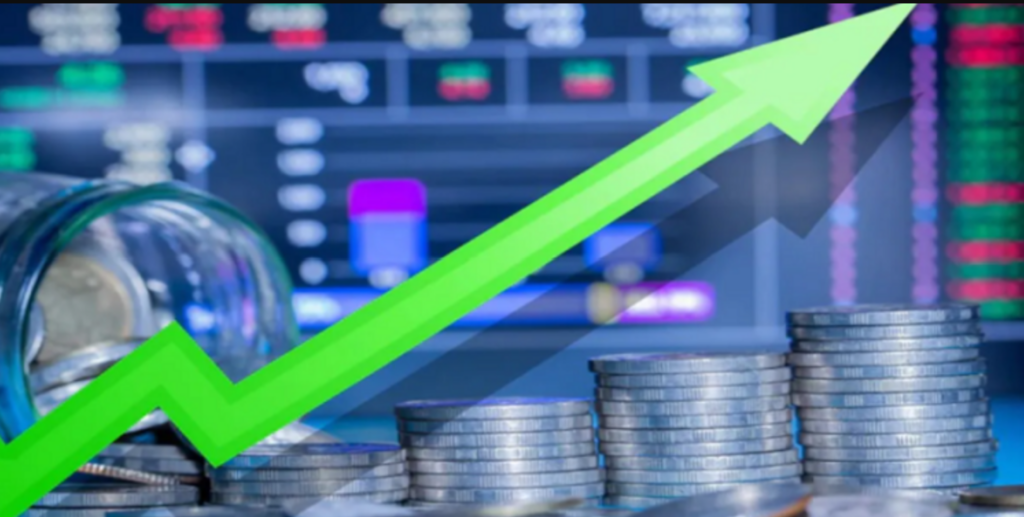Amid a global stock market crash that saw global stock markets lose over $2 trillion in market capitalization, the Nigerian Exchange (NGX) posted its first bullish trading day since July 22, 2024.
The NGX closed the week with a 0.42% gain as the All-Share Index closed at 97,745.73, with equities gaining N219 billion as the market capitalization closed at N55.497 trillion, up from the previous day’s N55.278 trillion.
On Friday, August 2, 2024, there was a crash across global stock markets, as fears of a recession in the US led to a global sell-off. The S&P 500 Index declined by 1.84%, while the New York Stock Exchange declined by 1.79%.
NASDAQ declined by a whopping 2.43%, while the London Stock Exchange closed with a 1.55% decline. In Asia, the story wasn’t different as the Hang Seng Index which tracks the Hong Kong Stock Exchange declined by 2.08%, and the Shanghai Composite Index closed with a 0.92% decline.
Trading data from Friday, August 2, shows that this is the worst global stock market crash since 2020 when news of a global pandemic hit.
Tech stocks were some of the worst hit, as Amazon (AMZN) declined by 8.78%, Microsoft (MSFT) declined by 2.07%, Alphabet (Google) declined by 2.35%, and Meta declined by 1.93%. Tesla declined by 4.24% and Nvidia declined by 1.78%.
Why there is a global stock market sell-off
The selloffs were prompted by the US’ job data which showed a sharp uptick in the country’s unemployment rate in July.
According to reports, the job data showed that the country’s July unemployment rate of 4.3% was its highest since September 2021, thus sparking fears of a deteriorating economy and an impending recession in the US economy.
It is noted that the data is likely to guarantee a rate cut by the US’ Federal Reserve Bank in September as the country will aim to drive up demand and spending within the US economy.
Some economists have also attributed the situation to actions by the US Central Bank, highlighting that the rate hikes from 2022 into 2023 have strained employers’ hiring capacities, resulting in an increase in the number of individuals receiving unemployment benefits overtime.
NGX gains on second day of protest
The NGX was immune from shocks that rippled through global stock markets as well as the second day of the protests in Nigeria. However, there was reduced trading activity on the NGX, as only 210.9 million shares traded during the day, the lowest since February.
The value of total trade that took place in the NGX was about N3.95 billion (~$2.6 million). During the day, the market breadth was more positive, as 36 stocks posted gains, in contrast with 10 that posted losses.
Top gainers: Okomu Oil, with a 10% gain, hit its all-time high share price of N321.20. Oando also continued its bullish run with a 10% gain to close at N25.30, while May & Baker also posted a 10% gain.
TotalEnergies also hit a new all-time high share price of N427.70 with a 9.98% gain, as oil and gas stocks keep up the bullish run. United Capital too, continued its bullish run to gain 9.95% and close at N12.15.
Top losers: Mecure Industries was the top loser of the day, with a 9.82% loss, after its half-year earnings result showed a slight year-on-year decline from last year.
ABC Transport also recorded a 9.09% decline, alongside Sovereign Trust Insurance as sell pressure intensified on that stock. Sunu Assurances Nigeria posted an 8.16% loss and UPDC Plc declined by 6.92%.
There was overall bullish sentiment on banking stocks, as the two banking SWOOTs, Zenith Bank and GTCO posted 2.86% and 2.27% gains to close at N36.00 and N45.00 respectively.
Other tier-1 banking stocks also posted gains, as UBA and Access Holdings posted 1.26% and 1.36% gains respectively. FBNH recorded no price change during the day.
